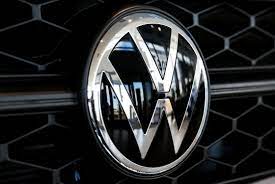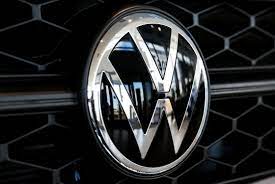
The EU agreement of phasing out combustion engine automobiles in just over 12 years is difficult, but a more formidable challenge will be producing enough batteries to power the electric cars required as a result, according to a senior Volkswagen executive on Wednesday.
The remark came after EU countries reached an agreement on proposed climate change legislation early Wednesday, including one requiring new cars sold in the EU to emit zero CO2 by 2035. more info
This would make selling internal-combustion engine vehicles difficult.
The European Commission first suggested the package last summer, with the goal of reducing global warming emissions this decade, but the agreement made it more likely that the proposal will become EU law.
"It's a challenging goal. We think it's doable," VW Chief Financial Officer Arno Antlitz told Reuters in an interview at Reuters Automotive Europe conference on Wednesday.
"The most challenging topic is not ramping up the car plants. The most challenging topic will be ramping up the battery supply chain."
VW has stated that it will cease selling combustion engine vehicles in the region by the deadline, but some carmakers, such as Toyota, who are further behind in the race to produce EVs, may struggle to reach the deadline. On Wednesday, the Japanese automaker declined to comment.
Major automakers have been scrambling to secure battery cell supplies, but getting sufficient battery raw materials may be a tougher challenge.
Failure to get appropriate supply of lithium, nickel, manganese, or cobalt could slow the transition to electric cars (EVs), increase the cost of those vehicles, and jeopardise carmakers' profit margins.
Stellantis CEO Carlos Tavares stated last month that he anticipates an EV battery scarcity in 2024-2025 as manufacturers struggle to ramp up electric vehicle sales while still building new battery factories.
The Luxembourg deal came after more than 16 hours of negotiating, with Italy, Slovakia, and other countries asking the phase-out to be delayed until 2040.
Countries eventually agreed to a compromise that preserved the 2035 aim while asking Brussels to investigate if hybrid vehicles could meet the goal by 2026.
The 2035 proposal is designed in such a way that any type of car technology, such as hybrids or cars that run on sustainable fuels, could theoretically meet it, as long as the car emits no carbon dioxide.
The Commission's 2026 review would look at technology improvements in hybrid vehicles to evaluate if they can meet the 2035 target.
(Source:www.economictimes.com)
The remark came after EU countries reached an agreement on proposed climate change legislation early Wednesday, including one requiring new cars sold in the EU to emit zero CO2 by 2035. more info
This would make selling internal-combustion engine vehicles difficult.
The European Commission first suggested the package last summer, with the goal of reducing global warming emissions this decade, but the agreement made it more likely that the proposal will become EU law.
"It's a challenging goal. We think it's doable," VW Chief Financial Officer Arno Antlitz told Reuters in an interview at Reuters Automotive Europe conference on Wednesday.
"The most challenging topic is not ramping up the car plants. The most challenging topic will be ramping up the battery supply chain."
VW has stated that it will cease selling combustion engine vehicles in the region by the deadline, but some carmakers, such as Toyota, who are further behind in the race to produce EVs, may struggle to reach the deadline. On Wednesday, the Japanese automaker declined to comment.
Major automakers have been scrambling to secure battery cell supplies, but getting sufficient battery raw materials may be a tougher challenge.
Failure to get appropriate supply of lithium, nickel, manganese, or cobalt could slow the transition to electric cars (EVs), increase the cost of those vehicles, and jeopardise carmakers' profit margins.
Stellantis CEO Carlos Tavares stated last month that he anticipates an EV battery scarcity in 2024-2025 as manufacturers struggle to ramp up electric vehicle sales while still building new battery factories.
The Luxembourg deal came after more than 16 hours of negotiating, with Italy, Slovakia, and other countries asking the phase-out to be delayed until 2040.
Countries eventually agreed to a compromise that preserved the 2035 aim while asking Brussels to investigate if hybrid vehicles could meet the goal by 2026.
The 2035 proposal is designed in such a way that any type of car technology, such as hybrids or cars that run on sustainable fuels, could theoretically meet it, as long as the car emits no carbon dioxide.
The Commission's 2026 review would look at technology improvements in hybrid vehicles to evaluate if they can meet the 2035 target.
(Source:www.economictimes.com)














